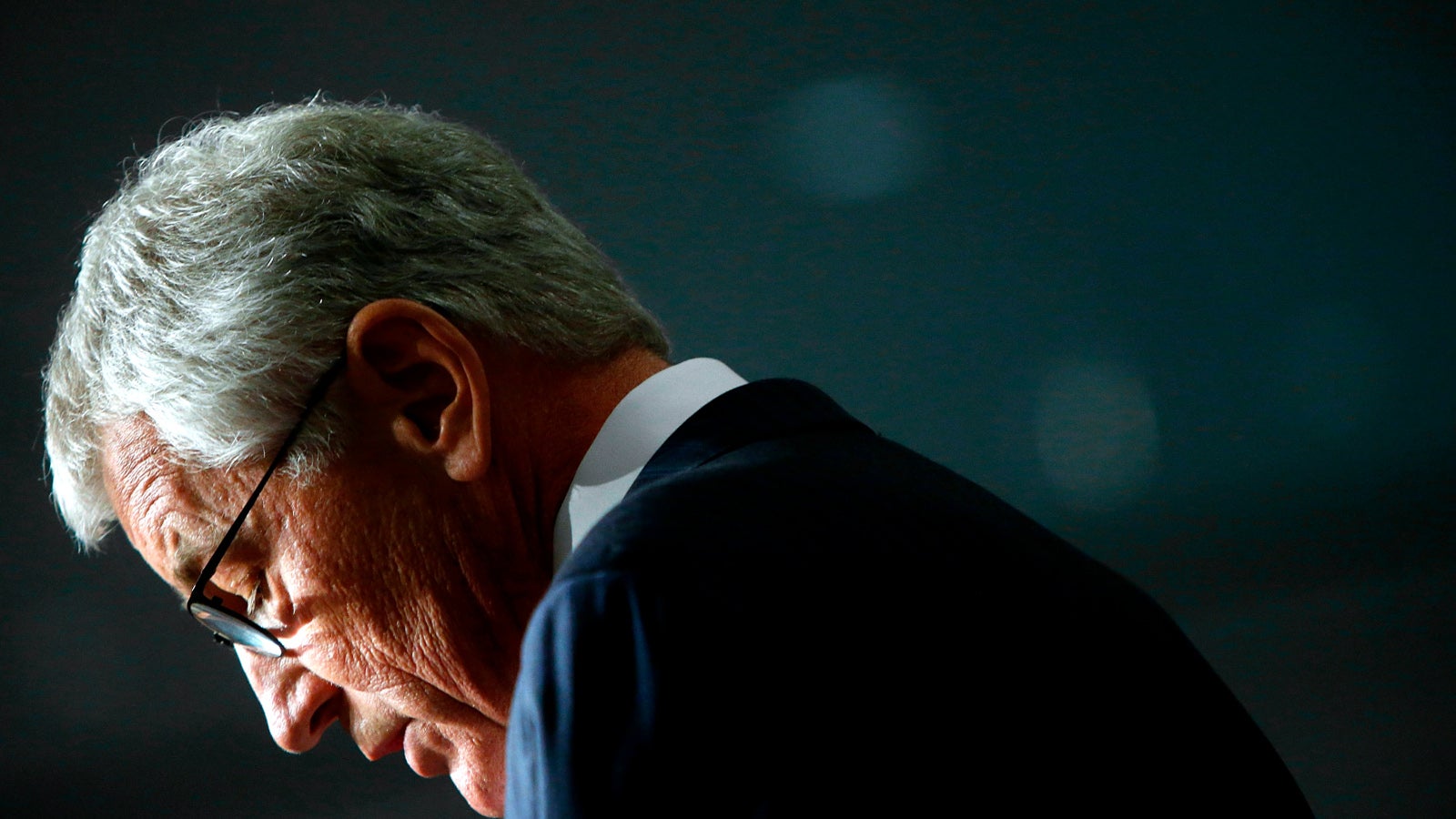Chuck Hagel’s resignation is the end of Obama’s fantasy foreign policy
It’s hard to remember, but up until the final months of his first campaign for president, Barack Obama, his staff, and bien pensant opinion expected him to focus on foreign policy: Extricating the US from unpopular Middle Eastern wars and pivoting to the Pacific.


It’s hard to remember, but up until the final months of his first campaign for president, Barack Obama, his staff, and bien pensant opinion expected him to focus on foreign policy: Extricating the US from unpopular Middle Eastern wars and pivoting to the Pacific.
He hoped to do so, as he hoped to do most things, in bipartisan fashion. Obama didn’t have the Democratic foreign-policy establishment behind him when he ran, but he did earn endorsements from many Republican realists: Brent Scowcroft, George H. W. Bush’s foreign-policy advisor; former secretary of State Colin Powell and then-senator Chuck Hagel among them. Obama’s first secretary of Defense was also a Republican, Robert Gates.
So last year, when Obama needed a new secretary of Defense, Hagel, a Vietnam combat veteran turned skeptic of US interventions, seemed the ideal candidate—someone who could work with Republicans in Congress to quietly wind down the war in Afghanistan.
But the bipartisan bona fides didn’t matter. At Hagel’s confirmation hearing before his erstwhile colleagues, he was lambasted from the left and right, and confirmed 58-41, compared to the unanimous endorsement received by his Democratic predecessor, Leon Panetta.
The wake-up call—that politics have long ignored that old politesse about the water’s edge—didn’t end then. While Hagel proved up to managing his department, he was not ready for the shifting challenges of global security: the rapid rise of ISIL in the security vacuum created by the Syrian civil war and sectarian tensions in Iraq following the US withdrawal, or Russia’s land-grab in Ukraine.
Hagel’s great failing as secretary of Defense wasn’t merely that he couldn’t articulate a response to these threats (or Congressional criticism) to reporters—it’s that the US doesn’t seem to have a strategy at all for dealing with failed states, extremist groups, or Vladimir Putin.
Indeed, more important than Hagel’s ousting was the news—leaked late on a Friday, natch—that US combat troops will be fighting in Afghanistan for an additional, unexpected year.
Putting flesh on the bones of that strategy will be hard for Hagel’s successor. Even with US troops deployed, the Taliban has exerted political control over much of the country. But the administration can’t afford to have another state marked by US military intervention descend into a messy conflict.
Hagel’s departure should mark the end of pretending troop withdrawals will be painless—or that the president’s diplomatic efforts will be backed by lawmakers of either party.
Let’s hope Obama’s next pick for Defense secretary has some better ideas.